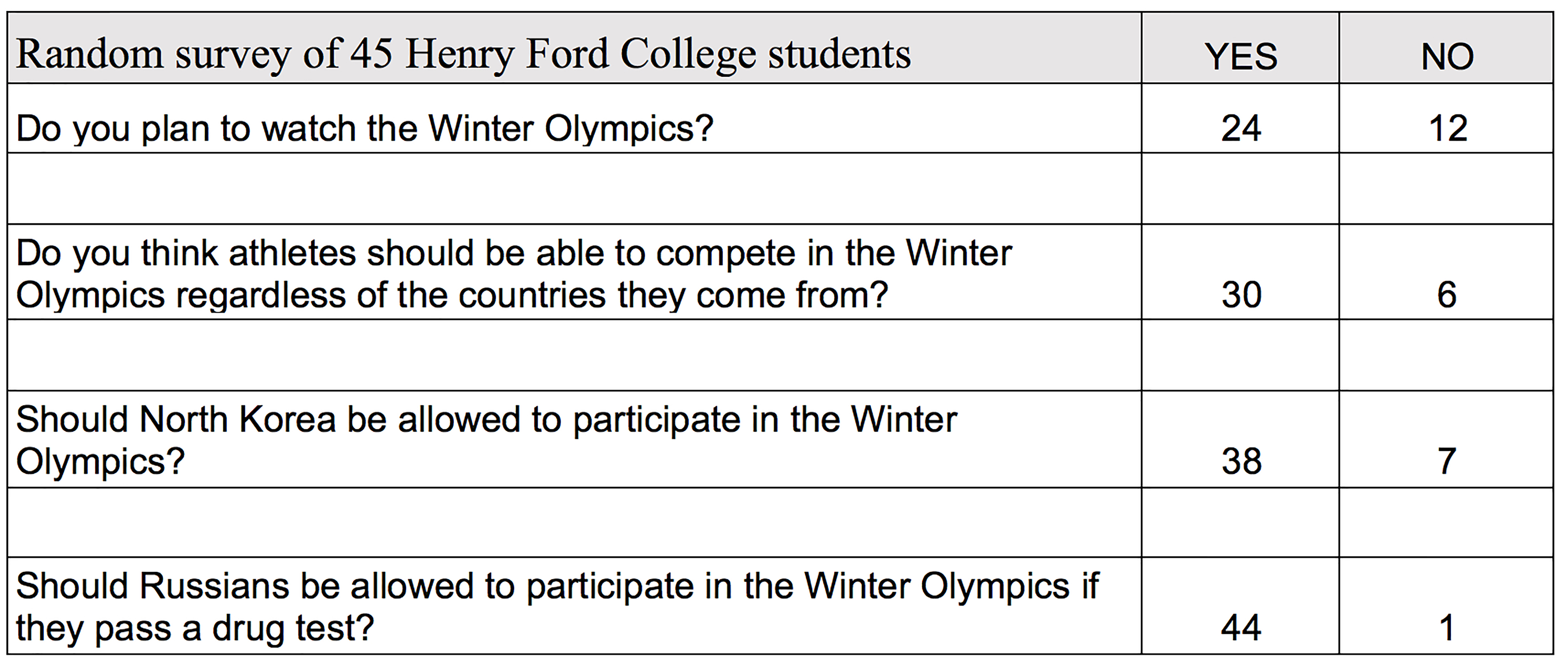Changes to Winter Olympics
Gallery

On Feb. 8, the Winter Olympics begin in Pyeongchang, South Korea, with curling and ski jumping. The opening ceremonies will be aired in the U.S. on Feb. 9 on NBC.
Russia has been banned from the games by the International Olympic Committee (IOC) after it was found that some Russian athletes used Performance Enhancing Drugs (PEDs) during the 2014 Winter Olympics in Sochi, Russia. Some Russians may, however, take part in the Olympics if they can prove they didn’t use PEDs. Qualifying athletes from Russia will have to attend the games under a natural flag, and use the name “Olympic Athlete from Russia.” The ruling to permit individual Russian athletes was made by the Court of Arbitration for Sport in Switzerland after several Russian athletes contested the IOC’s decision.
Not having Russia fully represented won’t be the only change this year, as the Winter Olympics have added four new events.
This year’s games will feature big air snowboarding, which will see the competitors attempt to fly off a highly-pitched ramp and perform tricks in the air. The IOC has also added mixed doubles curling, and mixed team alpine skiing, both of which consists of co-ed teams. The final new sport added this time around is mass start speed skating. Mass start speed skating is where up to 24 skaters race 16 laps at the same time, which is different from traditional speed skating where pairs of skaters race against the clock.
Not only are there four new events, the IOC opted to drop the snowboard parallel slalom.
There is one major change to a current sport in the Winter Olympic lineup —Ice Hockey. For the first time since 1998, the NHL will not send its players to the Olympics. The IOC was unwilling to pay to insure players on NHL rosters. The IOC felt that if they met the demands of the NHL, that other pro sports leagues would do the same.
North Korea will send some athletes to the Olympics; but, according to reports, North and South Korea will march into the games together under a Korean Unification Flag. The athletes from North Korea are two figure skaters (one man and one woman). The IOC also had a Wild Card arrangement that was considered if no North Korean athlete qualified.
South Korea attempted to extend an olive branch to North Korea with a United Korean team like the Women’s Ice Hockey team and also offered to allow North Korea to co-host some of the events. These were both rejected, as North Korea said there wasn’t enough time for the United Korean team to be formed and the same went for co-hosting.
South Korea will allow the athletes from North Korea to enter by crossing the Demilitarized Zone as a sign of peace. The zone, around 2.5 miles wide, is normally off limits to civilians.
